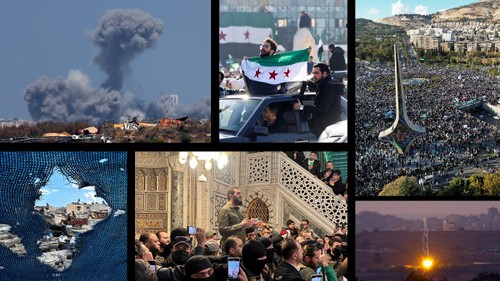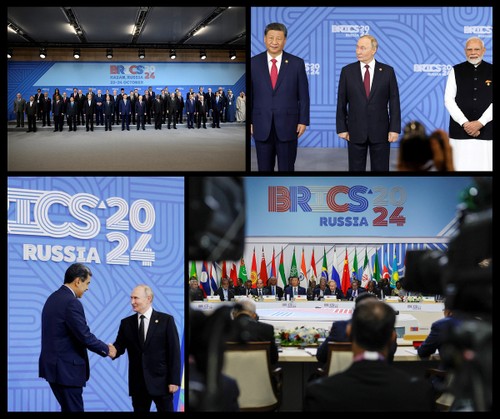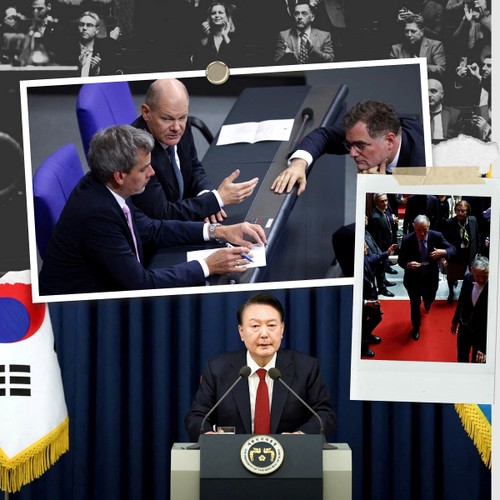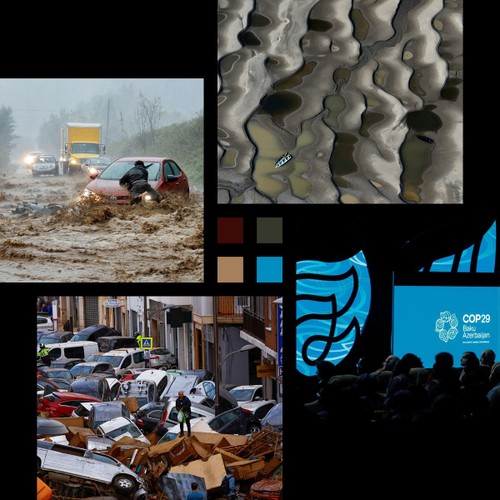1. Donald Trump wins dramatic US presidential election
 Donald Trump becomes the 47th President of the United States. Photo: Reuters Donald Trump becomes the 47th President of the United States. Photo: Reuters
|
The 2024 election, one of the most contentious and dramatic presidential elections in US history, ended with a landslide win for Donald Trump and the Republican Party gaining control of both the Senate and the House of Representatives. Incumbent President Joe Biden was pressured by the Democratic Party to withdraw his re-election bid to make way for Vice President Kamala Harris’s candidacy. Donald Trump was targeted in two assassination attempts. The 47th President of the United States is set to make major changes in domestic and foreign policies – fast-tracking deportation of undocumented immigrants, radically transforming the government, pushing to end the conflicts in Ukraine and Gaza, imposing big tariffs on China and others, and reorienting relations with the US’s traditional allies.
2. Middle East instability rises, Syrian regime collapses
 Unstable situation in the Middle East. Photo: Reuters Unstable situation in the Middle East. Photo: Reuters
|
The conflict between Israel and Hamas and Hezbollah entered its second year with no sign of abating. By the end of 2024, more than 44,000 people had been killed in Gaza, most of them civilians, infrastructure was almost completely destroyed, and economic losses were estimated at 18 billion USD. The conflict was not limited to Gaza but spread to Lebanon, Iran, Yemen, and elsewhere after the assassinations of senior Hamas and Hezbollah leaders, leading to a back-and-forth of retaliatory actions.
Iran and Israel openly attacked each other's territory for the first time. In December, the Bashar al-Assad regime in Syria suddenly and rapidly collapsed, marking a major turning point in Syria's modern history and creating a power competition in the Middle East, where Turkey, the US, Israel, Russia and Iran sought to consolidate their interests.
3. BRICS welcomes new members, expands influence
 BRICS admit more members in 2024. Photo: Reuters BRICS admit more members in 2024. Photo: Reuters
|
BRICS’s admission of new members in 2024 – Egypt, Iran, Ethiopia, and the United Arab Emirates (UAE) – reflects a structural change in the bloc and strategically impacts the global economic and political order. The expansion of BRICS increases the control rate of global GDP by purchasing power parity (PPP) to 35%, surpassing the G7. The membership of resource-rich countries like Iran and the UAE also adds to the power of BRICS in the energy sector. The bloc now controls nearly 50% of the world's oil production. BRICS is becoming a major geopolitical force, creating a counterweight to the US and Western-led institutions (G7, IMF, WB). This expansion affirms BRICS's ambition to build a more equitable multipolar world order that amplifies the voices of developing countries.
4. Russia-Ukraine conflict reaches a turning point
 The Russia-Ukraine conflict escalate in 2024. Photo: Reuters The Russia-Ukraine conflict escalate in 2024. Photo: Reuters
|
The Russia-Ukraine conflict reached a turning point in 2024. The Ukrainian raid on Kursk province in early August marked the first time since World War II that Russian territory was occupied by foreign troops. The West, accusing the North Korean army of fighting in Russia, lifted restrictions and began allowing Ukraine to use long-range missiles to attack Russian territory.
In response, Russia revised its nuclear doctrine, the main point of which was to lower the threshold for Russia to use nuclear weapons, even in the event of a conventional attack. Russia also used for the first time a new intermediate-range ballistic missile called Oreshnik to deter Ukraine and the West. This change in the conflict, on the one hand could lead to a direct conflict between Russia and NATO, but on the other hand increases the pressure on all sides to show restraint, behave more responsibly, and move toward a peaceful resolution.
5. World economy resilient in the face of challenges
 2024 world economy maintain stability despite challenges. Photo: Reuters 2024 world economy maintain stability despite challenges. Photo: Reuters |
In 2024 the global economy remained remarkably resilient despite geopolitical fluctuations, some regional trade flow disruptions, and the reorganization of global supply chains. The WB and IMF projected a global growth of 3.2%. Major economies like the US and China have recorded growth, and the fight against inflation has been fruitful in the US, the Eurozone, the UK, and elsewhere, helping central banks confidently start the process of cutting interest rates. However, the global economy still faces major challenges in the medium term due to geopolitical instability caused by major conflicts, as well as the unpredictability of the new US administration.
6. Political turmoil in Republic of Korea, Germany, France
 Political turmoil in Republic of Korea, Germany, and France. Photo: Reuters Political turmoil in Republic of Korea, Germany, and France. Photo: Reuters |
The Republic of Korea experienced its biggest political crisis in decades after President Yoon Suk Yeol declared martial law on December 3 under the pretext of dealing with "anti-state forces". His short-lived martial law declaration caused President Yoon to be impeached by the National Assembly for staging a riot against established state authorities to undermine the constitution. A number of high-ranking officials in Yoon's administration, including Defense Minister Kim Yong Hyun, were arrested.
In Germany, the three-party coalition government of Chancellor Olaf Scholz collapsed on December 16, necessitating an early national election, to be held at the end of February 2025.
In France, President Emmanuel Macron dissolved the National Assembly in early June, and France entered a prolonged period of political instability. Michel Barnier's government fell on December 4 after just three months. The instability of the RoK, Germany, and France will have a significant impact on regional and global economics and politics.
7. World spends more on climate change response
 The world faces serious impacts of climate change in 2024. Photo: Reuters The world faces serious impacts of climate change in 2024. Photo: Reuters |
In 2024 the world continued to see serious impacts from climate change, with increasing frequency and intensity of extreme weather events like storms, floods, and heat waves. Super typhoons (Yagi, Helene, Milton, Kong-rey), historic floods in Spain, and record high temperatures in South Asia claimed thousands of lives and caused economic losses of hundreds of billions of dollars. At the 29th Conference of the Parties to the UN Framework Convention on Climate Change (COP29) held in November in Baku, Azerbaijan, countries reached a new agreement on climate finance called the “New Collective Quantified Goal” (NCQG). Under the agreement, developed countries commit to contribute 300 billion USD per year by 2035, three times the previous commitment of 100 billion USD per year, to help developing countries respond and adapt to climate change.
8. Paris Olympics leaves lasting impressions
 Paris Olympics 2024 leaves lasting impressions. Photo: Reuters Paris Olympics 2024 leaves lasting impressions. Photo: Reuters
|
Hosted from July 26 to August 11 by France, the 2024 Summer Olympics made many lasting impressions. The competitions were spread over a record number of venues in Paris and 16 other French cities and even in French Polynesia, a French overseas territory in the South Pacific more than 15,000 kilometers from France. For the first time in Olympic history the opening ceremony was held outside a stadium, along the Seine River. Athletes competed at cultural and artistic venues, and many new world records were set. However, controversies arose in relation to art, religion, gender, and the organization and logistics at the athletes' villages.